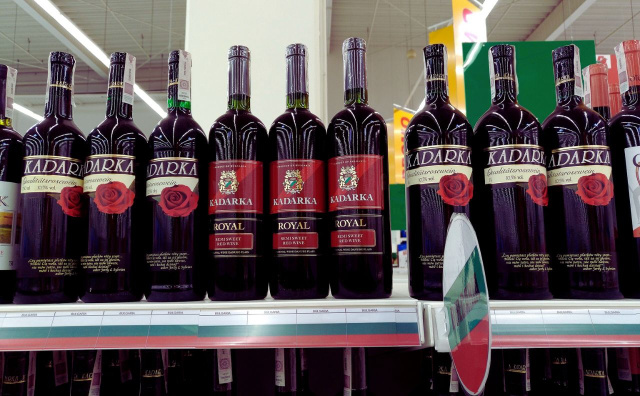
Bulgaria is increasingly turning its focus to wine tourism, aiming to make it a central element in attracting visitors throughout the year. The country’s rich wine heritage, combined with picturesque landscapes, offers a unique opportunity to diversify its tourism offerings.
During a recent meeting with the Bulgarian Association for Wine Tourism, Tourism Minister Miroslav Borshosh emphasized the need to position wine tourism as a strategic complement to Bulgaria’s existing attractions.
“Wine is not just a product, it is an experience that can enhance cultural tourism and bring visitors back throughout the year,” Borshosh said.
Key discussions revolved around the development of dedicated wine routes across the country. These routes are designed to connect vineyards, wineries, and tasting rooms with local cultural and historical landmarks, giving tourists a more immersive experience.
By working closely with municipal authorities, local producers will benefit from improved infrastructure and coordinated marketing efforts, helping to increase visibility and visitor numbers.
Borshosh also highlighted ongoing initiatives to establish a national fund dedicated to promoting Bulgarian wine internationally. The fund will support marketing campaigns, participation in global events, and collaborations with foreign distributors.
This initiative is expected to raise Bulgaria’s profile in competitive wine markets and encourage international wine tourism, providing both economic and cultural benefits.
Further enhancing the country’s visibility, Plovdiv is set to host the 9th Global Conference on Wine Tourism from October 5 to 7, 2025. The event will attract over 150 international participants, including institutional representatives, experts, academics, and media professionals.
For Bulgarian wineries and wine regions, this is a significant opportunity to showcase their products, network with international stakeholders, and learn from global best practices.
The conference will include presentations, panel discussions, and wine-tasting sessions, offering a platform for dialogue and collaboration. Experts expect the event to highlight trends in sustainable wine tourism, innovative marketing strategies, and the integration of wine culture into broader travel experiences.
Local wine producers have welcomed the government’s approach, noting that tourism partnerships and global exposure are critical for growth.
“This initiative allows us to connect with visitors directly, promoting our wines alongside Bulgarian culture and cuisine,” said one winery owner from the Thracian Valley, a region renowned for its red varietals.
Bulgaria’s wine tourism strategy also emphasizes the importance of education and training. By equipping guides, hospitality staff, and local communities with specialized knowledge, the country aims to provide memorable experiences that encourage longer stays and repeat visits.
As Bulgaria leverages its centuries-old winemaking tradition and scenic landscapes, wine tourism is poised to become a significant pillar of the nation’s tourism sector.
With structured routes, international promotion, and the upcoming conference in Plovdiv, the country is steadily moving toward a more diversified and year-round tourism industry.
The strategic focus on wine tourism reflects Bulgaria’s commitment to sustainable growth in tourism, creating opportunities for local businesses, preserving cultural heritage, and strengthening its international image as a premier wine destination.
This article was created using automation technology and was thoroughly edited and fact-checked by one of our editorial staff members
